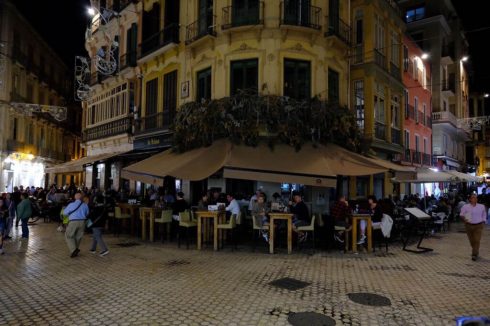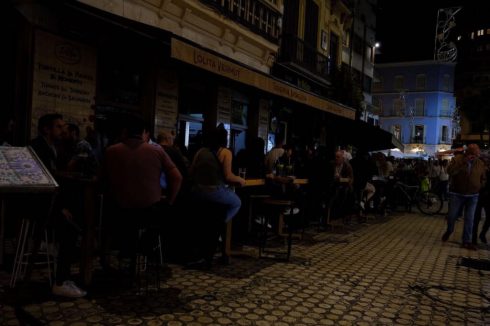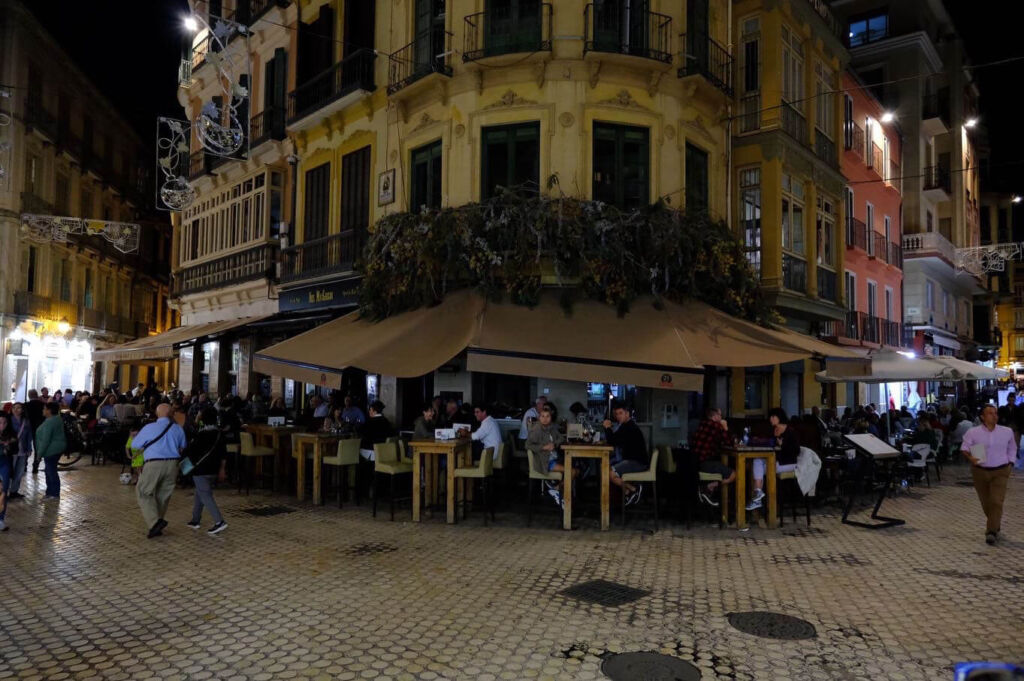PUNTERS enjoying the sights and sounds of Malaga’s old town on Tuesday might have had a spooky encounter as they stumbled upon a typical Malagueña plaza completely blacked out at 19.00 sharp.
While some wondered if the darkness was an antecedent to some sort of show or performance, and others speculated that the Christmas lights might be switched on for the festive season, the reality was that it was a symbolic protest by the bars of Plaza del Carbón, fed up with rising energy bills.

But the blackout was not restricted to just one small corner of Malaga; it was taking place nationwide in dozens of towns and cities across 28 provinces, where hospitality businesses have been floored by the soaring prices of gas and electricity.
The average energy costs of a restaurant can previously could range between 3,000 and 6,000 euros, depending on the size of the establishment and the services provided.
But these bars, restaurants and hotels across Spain have been watching aghast as double-digit inflation has scared off their customers, meanwhile their energy bills have shot up between 200%-400%.

Energy costs can make up approximately 20% of a hospitality business’ overheads, according to the Association of Hoteliers of Malaga, and the sector counts for as much as 9% of the national workforce.
José Simón, spokesperson for the association, stressed to MalagaHoy that this is an industry that ‘cannot be allowed to fail.’
The worst affected by the energy crisis were small family businesses and the self-employed, he explained, whose businesses are unable to bear the extortionate burden brought on by steep rise in prices across the board.

The daily blows to the hospitality sector comes even as business and tourism levels return to – and exceed – pre-pandemic 2019 levels. What should be a time of bonanza has instead become a time of worry and failure.
Rising energy prices, driven primarily by the energy and food price shocks caused by Russia’s invasion of Ukraine, coupled with a post-pandemic surge in demand and failure of supply chains, is usually blamed for the current economic woes.
But there is little light shining through at the end of the tunnel for restauranteurs or customers alike, as the current downward cycle is thought to just be starting.
READ MORE:
- The ‘air bridge’ between Malaga in Spain and the United Kingdom comes roaring back
- Autumn weather remains on hold in Spain’s Malaga this weekend
Click here to read more Malaga News from The Olive Press.








